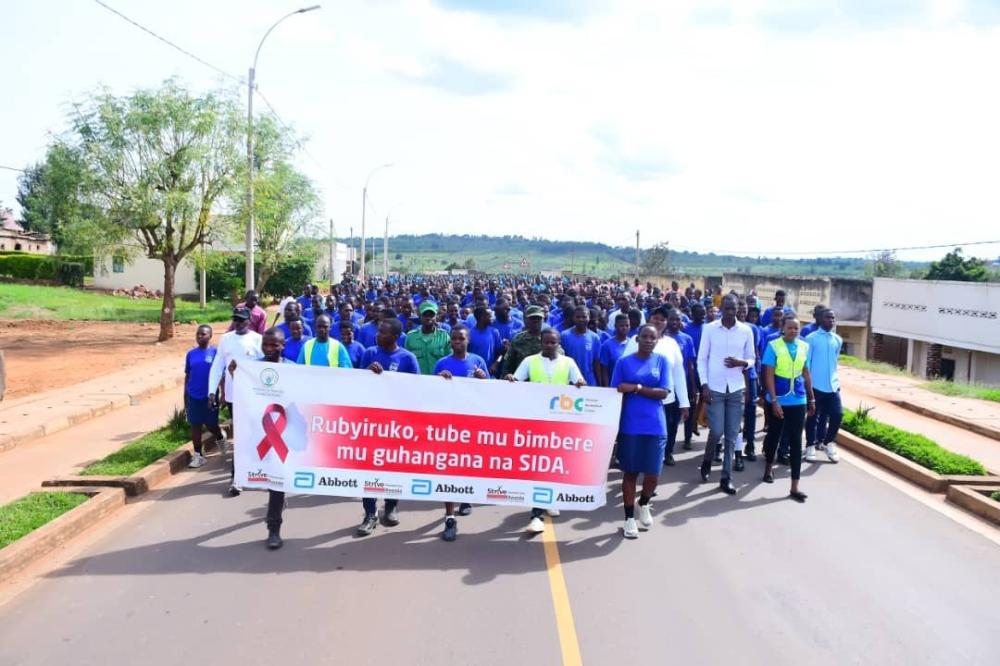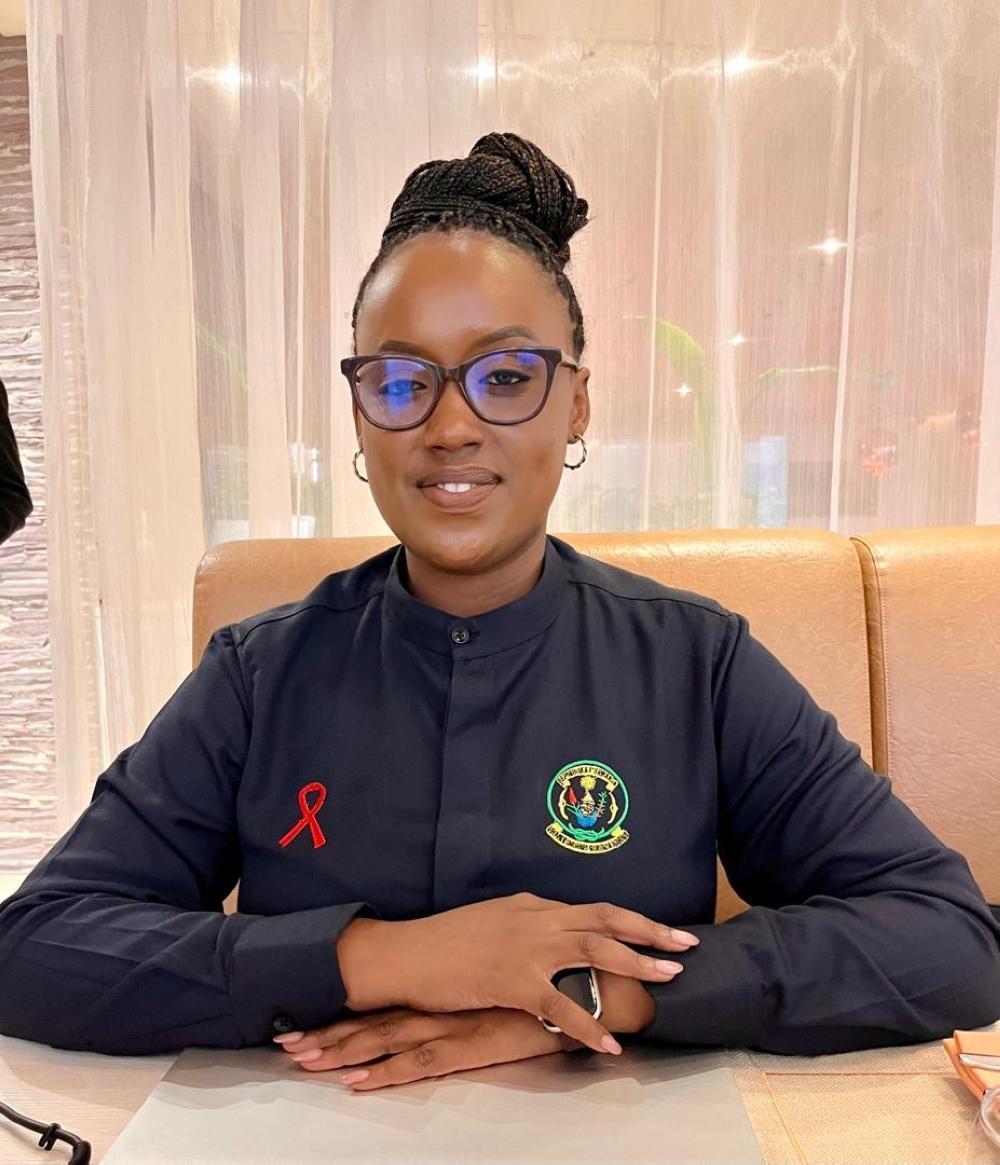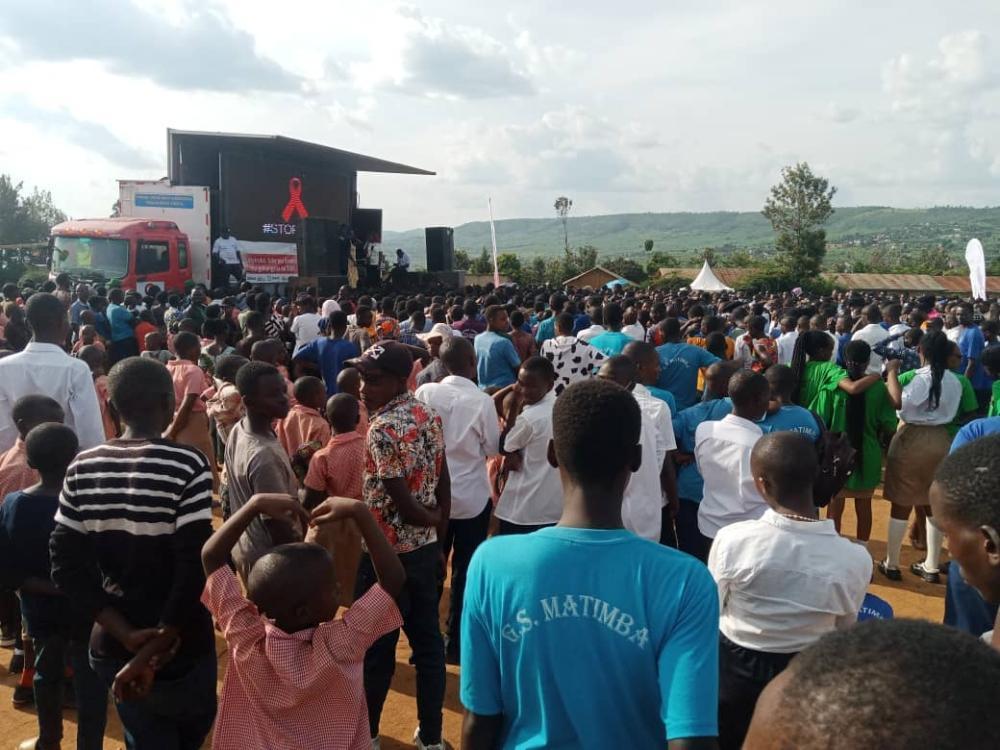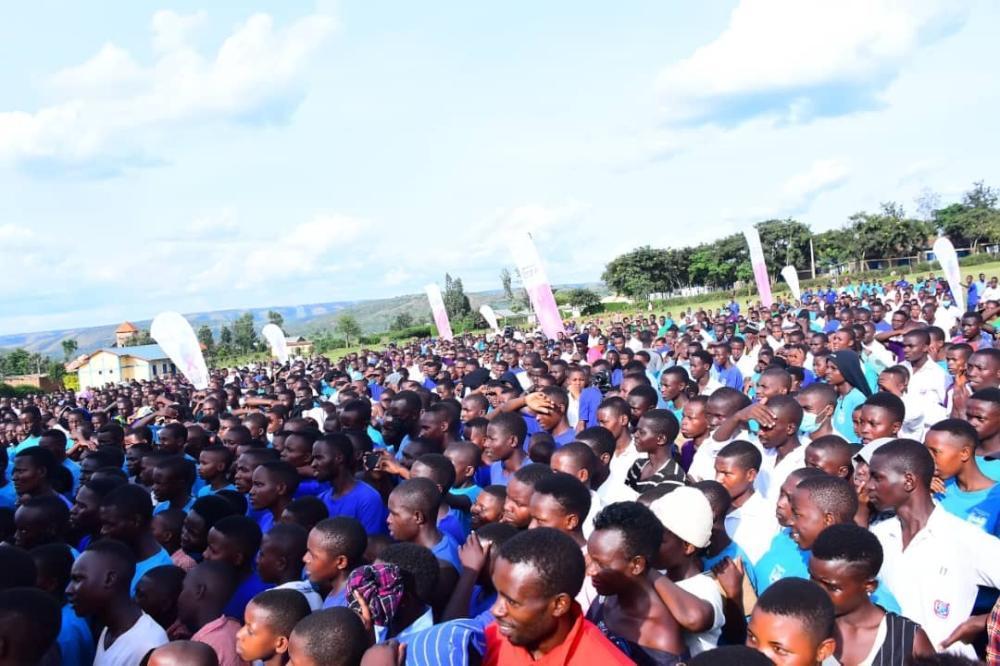Africa-Press – Rwanda. When Keza (not her real name) was a senior four student at a school in Matimba Sector, Nyagatare District, her life changed drastically after a school staff member disclosed her HIV status without her consent.
This led to widespread gossip and social isolation, severely affecting her daily school routine.
“By the end of the term, the whole school knew,” she recalled. “My classmates treated me like someone who was going to die the next day. I was completely alone and I decided to leave.”
Today, Keza is a senior six student in another school in Kayonza District. But her experience reflects a persistent and painful challenge facing many HIV-positive adolescents in Rwanda’s schools. Stigma remains a significant barrier for young people living with HIV, often forcing them into silence, isolation, or dropping out of school. A 2020 Ministry of Health report revealed that 13% of people living with HIV in Rwanda still face social isolation, with schools cited among the most challenging environments for stigma.
To counter stigma, RBC has trained 383 school officials—ranging from patrons and matrons to directors of studies—on how to support students living with HIV, according to Dr Gisele Mujawamariya
Recognizing the urgent need to tackle this issue, Rwanda Biomedical Centre (RBC) intensified efforts to end discrimination in schools. Dr. Gisele Mujawamariya, the Acting Director of HIV/AIDS Care and Treatment at RBC, warned, “Stigma in schools is one of the most stubborn barriers we face. That’s where attitudes are formed. If we don’t act now, we risk undoing all the work we’ve done.”
To counter stigma, RBC trained 383 school officials—ranging from patrons and matrons to directors of studies—on how to support students living with HIV.
By mid-June, an additional 139 officials will undergo similar training, with a focus on schools in Southern Province.
Rwanda has approximately 300,000 people living with HIV, with a significant portion aged 15 to 24—a group that also accounts for many new infections.
Some schools have taken matters into their own hands. A headteacher in Nyagatare acknowledged that lack of disclosure by parents limits the support schools can offer.
Nearly 5,900 young adolescents in Rwanda, mostly school-aged, live with HIV, underscoring the critical importance of supportive school environments.
Despite Rwanda’s success in HIV treatment—where 92% of diagnosed individuals receive antiretroviral therapy—activists emphasize that without addressing stigma, treatment outcomes will fall short of their full potential.
Sylivie Muneza, the head of Rwanda Network of People Living with HIV/AIDS, highlighted ongoing challenges, saying: “Children are still being ridiculed simply for taking HIV medication in class. Many choose silence or drop out entirely. Children with HIV in schools need unique attention.”
RBC distributed 4,000 HIV pill boxes last fiscal year, prioritizing adolescents at high risk, according to Dr Gisele Mujawamariya
Muneza urged the government to expand the distribution of discreet pill boxes that help adolescents take their medication privately, and to urgently revive student-led anti-AIDS clubs which were once vital for awareness and peer support.
“These clubs must return if we want to protect vulnerable learners and foster understanding among peers,” she said.
RBC distributed 4,000 pill boxes last year, prioritizing adolescents at high risk, including those on pre-exposure prophylaxis (PrEP). Of these, 1,971 were handed over to Rwanda Network of People Living with HIV to reach more vulnerable youth.
“We’ve already seen encouraging results and plan to expand access to more schools and more students on treatment,” Dr. Mujawamariya noted.
She also acknowledged the decline of anti-AIDS clubs and the need to rethink their structure. “We’re examining why these clubs lost momentum—whether due to format or participation—and we are redesigning them with youth-driven, sustainable models in mind,” she said.
Kevin (not his real names) is one young man who contracted HIV while in secondary school and endured harsh stigma, including being rejected from five different schools.
Kevin (not his real names) is one young men who contracted HIV while in secondary school and endured harsh stigma, including being rejected from five different schools. Despite these challenges, he adhered to treatment, achieving viral suppression within six months and eventually returning to school.
Now a teacher and university student at UR- Rukara College of Education, Kevin encourages the youth to abstain when possible, stressing that HIV cannot be judged by physical appearance. “Being fat or looking healthy does not mean someone is HIV-free,” he warned.
Some schools have taken matters into their own hands. A headteacher in Nyagatare acknowledged that lack of disclosure by parents limits the support schools can offer. “Many parents don’t tell us their child’s HIV status, which puts us in a difficult position. But we are reintroducing anti-AIDS clubs and training teachers to ensure all students are treated with dignity,” he said.
Rwanda’s national HIV epidemic is showing steady progress. New infections are declining, and the prevalence rate holds at 3%. The country is advancing toward the UNAIDS 95-95-95 targets for 2030—aiming for 95% of people living with HIV to know their status, 95% of those to be on treatment, and 95% of those treated to achieve viral suppression.
Through adoption of the WHO’s “Treat All” policy and intensified awareness campaigns, Rwanda has seen an 80% reduction in HIV-related stigma and over a 50% decrease in rights violations against people living with HIV.
Stigma remains a significant barrier for young people living with HIV, A 2020 Ministry of Health report revealed that 13% of people living with HIV in Rwanda still face social isolation.
For More News And Analysis About Rwanda Follow Africa-Press









